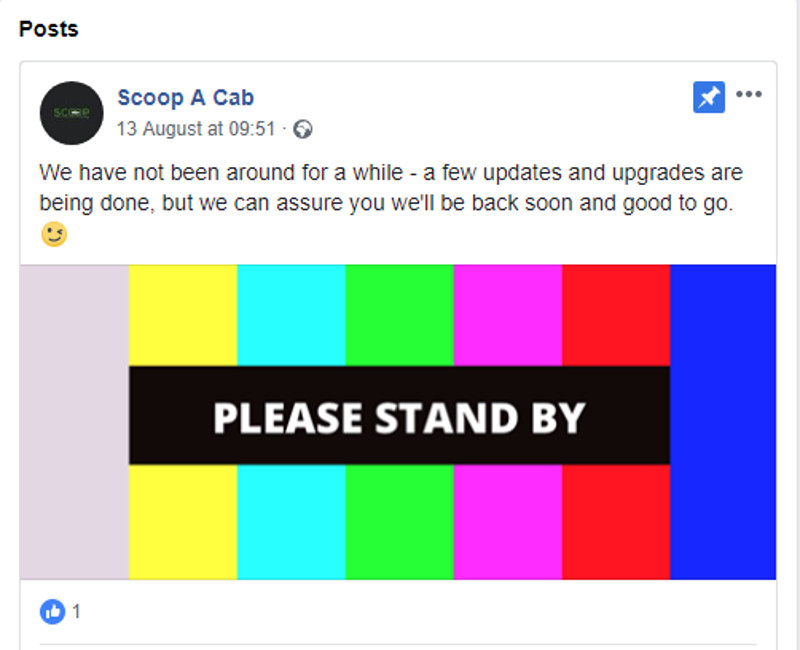AI isn’t coming. It’s already at your desk. And if you’re South African, chances are you’re ready to hit the ground running. A brand-new…
How SA ride hailing startup Hailer wants to undercut industry giants Uber, Taxify

Malvin Nkomo might be crazy to go up against ride-sharing giants Uber and Taxify, but the Joburg entrepreneur says he’s confident he has a plan to undercut the mobility juggernauts.
Nkomo, who is originally from Zimbabwe, runs Joburg-based ride hailing startup Hailer which he founded in 2016.
His is just one of several local startups that have launched in the ride-hailing industry — none of which seem to have come up with a model that successfully competes with Uber and Taxify.
But he reckons his offering will be different. In an email last week he told Ventureburn that he’s relying on an arsenal that includes a competitive pricing and commission structure, security and safety features and the advantage of being a local brand — to take on Uber and Taxify.
“We do not always seek to differentiate ourselves, but we love to think of Hailer as augmenting the existing service provider by bringing in a different pricing and commission dynamic, coupled with a proactive emergency service to address safety and security concerns,” said Nkomo.
Hailer was founded in 2016 and currently operates in Johannesburg, Pretoria and Kimberley
He says the startup’s pending safety updates will enable drivers to see just how many passengers they will be picking up before they accept a trip.
“The driver will know beforehand and make a decision to pick up the clients or not. In most instances a ride is requested and the driver has no clue that he is going to be picking up four people, and this is how many drivers have fallen prey to robbers and malicious riders,” he explains.
In addition, the startup vets drivers and their cars through Afiswitch and eNaTIS.
He also acknowledges that driver commission has been “a bone of contention” .
To counter this he’s come up with a bundled structure that he says is similar to cellphone deals offered by mobile network operator dealerships. In addition, in the first month that a driver signs with the startup, they are not charged any commission.
“Our commission structure will see us taking about 10%. We group the drivers into revenue bands with fixed commission,” explains Nkomo. In comparison, Uber charges a 25% commission, while Taxify takes a 15% cut from each driver.
Tried to register as Uber driver
Nkomo decided to start the business after trying to register as a driver for Uber.
“I was told by the administrator serving, that there is a backlog of over five months of processing vehicle and driver application and that is how much I must expect to wait,” says Nkomo.
He says it is at that time that he realised the gap and the potential market that exists in the sector. The startup currently operates in Johannesburg, Pretoria and Kimberley and employs 10 people.
Nkomo says he chose Joburg and Pretoria because they already have a “captive market” and because ride-hailing services are more popular there.
“We figured that if we survive in Joburg, then we might survive in the major cities,” he says.
“Kimberley is a city that totally does not have a ride-share services and this will help us ascertain the challenges associated with launching in a city that is not already using such services,” further explains Nkomo who has plans to extend operations to Mpumalanga, East London and Cape Town.
Not much traction
But he concedes that the startup hasn’t yet gained much traction. To date, the startup has signed up just over 40 drivers. It’s an ongoing process and is the startup’s “main hurdle”, he confesses.
He adds that the startup has completed over 50 trips and that these do not include the over 700 test trips that Hailer has completed.
And he’s pretty frank about these challenges. “At the moment our numbers are very low in trips completed because riders cancel trips based on the long arrival times of drivers and drivers also do not like picking clients that are too far,” he explains.
Shoe-string budget
He says the main challenges the startup is facing include shortage of technical human capital to develop the Hailer app — the startup’s platform is available on Android, but not on iOS — and marketing on what Nkomo says is a shoe-string budget.
The biggest he admits is signing up drivers. “The acquisition of drivers is pretty challenging because drivers want a quick return from the instance they are signed up forgetting that Hailer is still new and the captive market is still very low,” he says.
Since it launched, Nkomo says Hailer has spent over R50 000 in marketing-related initiatives.
Struggling competitors
But how far will his startup get, when the market is full of competitors all struggling against Uber and Taxify, with some having closed down?
Some of these include Pietermaritzburg-based Tag Your Ride as well as Yookoo Ride and SnappCab from Johannesburg. In 2014, one of South Africa’s first ride-hailing startups Zapacab closed shop with the founders citing lack of traction from local drivers and an underdeveloped smartphone environment.
A question mark hangs over another ride-hailing startup that Ventureburn has featured before, Scoop A Cab.
The startup was founded last year by Princess Ncube and launched its service in Bloemfontein, Johannesburg and Pretoria.
In a call with Ventureburn on Friday (7 September), Anesa Matawa — a former Scoop A Cab employee — said she knew of two other employees (other than herself) who had resigned from the company.
Read more: Will local startup Scoop A Cab really offer meter taxi drivers a way to take on Uber?
The startup’s website is no longer operational and the company issued a statement on Facebook on 13 August informing customers that it was carrying out updates and upgrades.
Ventureburn attempted to contact Ncube, but the company’s listed number went unanswered, and she had not responded to our questions by the time of publication.

Despite this, some startups appear — at least on the outside — to be doing well.
n July, Jumpin Rides, a Cape Town-based carpooling startup which claims to have 10 000 users on its platform raised R1.8-million in funding.
On-demand taxi startup Mellowcabs, which has developed its own locally-produced electric zero carbon-emission vehicles, was last year selected to join the Man Impact Accelerator and is currently operating in Cape Town.
Nkomo believes that the local ride hailing industry will grow with the proliferation of on-demand services in various sectors of the economy. He believes that a gap exists in the market and that his startup has to find a “very solid market”.
Says the Zimbabwean entrepreneur: “It is up to South Africans to bet on a horse while it is in the mud as compared to them betting on us when we are in the winner’s circle. We need to urge strong local support of start-ups.”
Featured image: Hailer founder Malvin Nkomo (Supplied)


